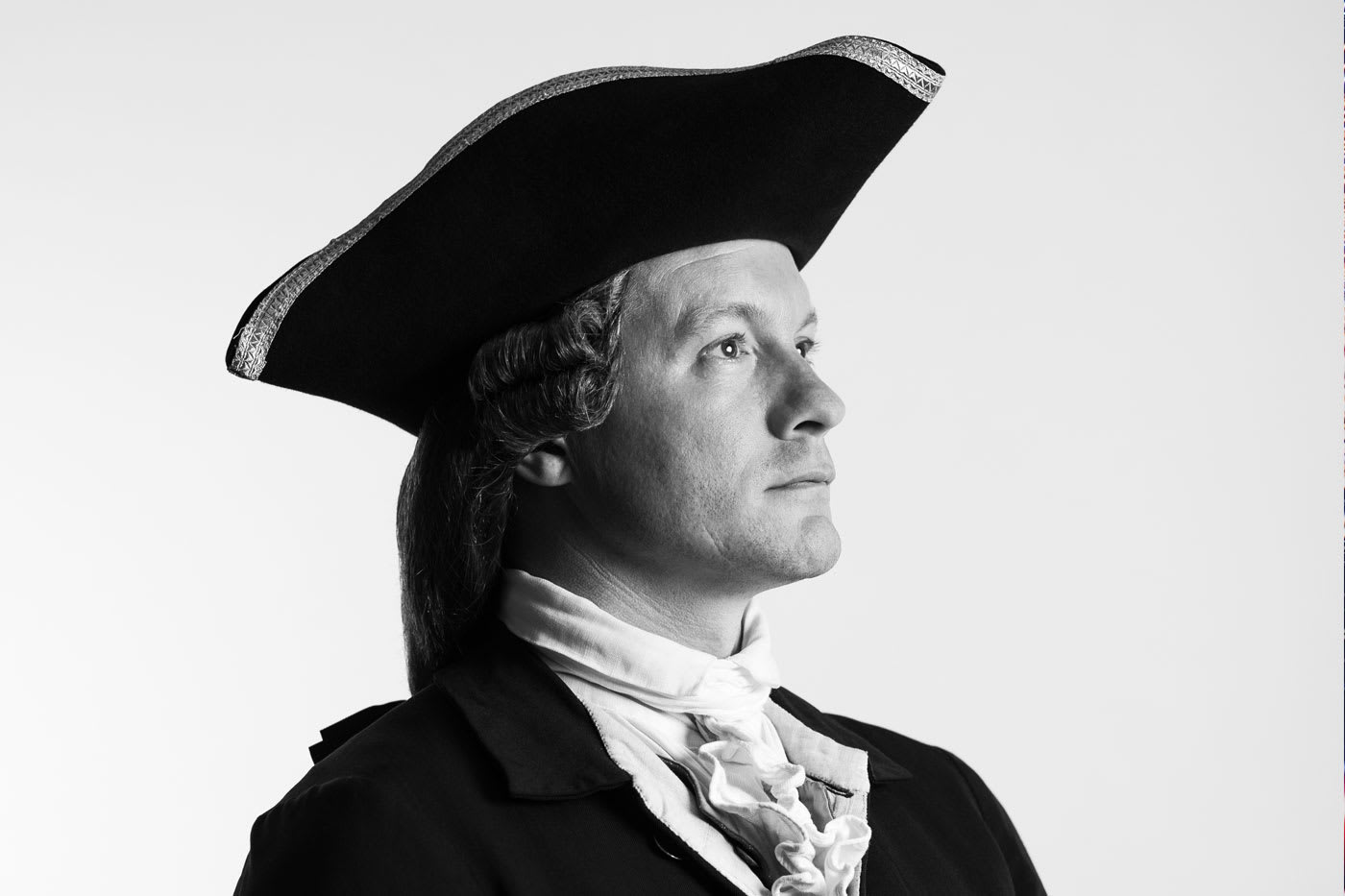Since 2016, Kurt Smith has been portraying Thomas Jefferson in the Historic Area. The Arkansas native earned a master’s degree in acting from the University of Iowa. After some seven years of studying Jefferson, he offered some thoughts on the man he has come to know as, simply, “Thomas.”
What parts of Jefferson’s character do you want most to convey in your interpretation?
For me, Thomas Jefferson is just Thomas. He has been for many years. There is no “Mr.” or “Excellency” or “President.” And I think this is probably to our benefit. I am not the arbiter nor the executioner of the life of Thomas — I am merely the steward. There are times where I find myself getting hot under the collar with an answer [to a question], but my hope is to divorce my own ego from the normal tête-à-tête that has become all too common in our national conversation. In fact, if I could be so bold, I would offer that a real, honest Jefferson is exactly what we need right now. So when you read history and you find not an ounce of yourself inside, read Jefferson — because I assure you there is enough beauty, enough fault, enough slipperiness, enough hope for a nation to still wrestle with 250 years later.
What is the most surprising thing you’ve learned about him?
Anyone who has read a book more than once realizes that the same book can teach you the same lesson — but on a deeper and deeper level each time. Thomas’ humanity continues to meet me with both a deep sigh and an understanding hug.
It must take a great deal of bravery to be the youngest member of a delegation and ask for a way out of slavery — the economy that props up every single member of that assembly. It must be difficult to look in the eyes of the big-moneyed interest that has bought the seats of every delegate around you and dare those deep pockets to be better. I know Thomas wasn’t perfect, but he clearly tried to stand against the immoral lobbyists of his time. That must have been scary.
What would surprise Jefferson most about the state of our nation and the world today?
Electricity, the internet and the number of people who choose not to vote. I think he would really have a difficult time understanding how a people who have electricity and democratized system of free knowledge through the internet would then choose, willingly, to be apathetic.
Is there a point in Jefferson’s young life where it appears obvious that he is cultivating himself as a leader?
There is a time in Thomas’ early life where he canoes to some of his neighbors’ homes and walks to the rest. He is asking for money to help dredge the near portion of the river that adjoins their homes, for they would all benefit from a dredged river by seeing greater profits from navigation. Thomas was a young man at the time, but I consider it his first act of public service.
How did Jefferson use the written word to persuade others to join the fight for independence?
Perhaps Thomas’ first impact in ink was in 1774 with his Summary View of the Rights of British America. This radical document Thomas wrote while in partial solitude and somewhat fearful of the political repercussions. If there ever was a time in his life when he was writing with real bravery, it was then. Even more so than his ’76 Declaration, because in ’74 the nation wasn’t with him. He didn’t have the whole support of the Congress. He was just a nobody voice from Virginia who was hoping to move the needle just a little bit. He was probably a little too hot against the crown for his own liking because he didn’t put his own name on the document. I think this was the time he realized the power that his pen could hold. A quill holds just a milliliter of ink, but it can stay an army, inspire a religion, contract a marriage or incite a world war. Jefferson must have felt this for the first time in 1774 with that document. He was barely over 30 years old.
